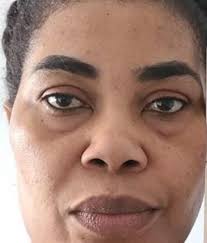
DOUBLE-EDGED SWORD OF ETHNIC BIGOTRY IN NIGERIA: A CALL FOR EQUITABLE JUSTICE
In light of the recent controversy surrounding Amaka Patience Sunnberger, an Igbo Canadian who made incendiary remarks against Yoruba and Benin people, the conversation on ethnic relations in Nigeria has intensified.
While Amaka’s comments have prompted condemnation and a call for legal action in Canada, this incident opens up a broader discussion about ethnic incitement in Nigeria, particularly from all sides, including the Yoruba against the Igbo.
The Amaka Patience Sunnberger Incident
Amaka’s remarks, which involved threats of poisoning Yoruba and Benin people, sparked widespread outrage. The Nigerians in Diaspora Commission (NiDCOM) quickly intervened, identifying her and demanding legal action be taken against her in Canada. This case highlights the critical importance of accountability when it comes to ethnic slurs and threats. It is clear that the Nigerian society expects firm repercussions for such actions.
Yoruba Incitement Against Igbos
It is essential to recognise that ethnic incitement in Nigeria is not a one-sided issue. Over recent years, social media platforms like X (formerly Twitter) have become battlegrounds for ethnic tensions, particularly between the Yoruba and Igbo communities. Unfortunately, even prominent figures have been implicated in these tensions. For instance, there have been instances where influential Yoruba figures have made derogatory remarks against the Igbo. Notably, the Oba of Lagos, Rilwan Akiolu, during the 2015 elections, reportedly warned the Igbo community in Lagos to vote for a specific candidate or face the consequences of being drowned in the lagoon.
Additionally, Remi Tinubu, the wife of President Bola Tinubu, has also been criticised for making comments perceived as inflammatory towards the Igbo community. These remarks, often interpreted as slurs, have further exacerbated ethnic tensions, especially in politically charged environments.
Instances of direct hate speech, including calls for violence against Igbos, abound. Some have gone as far as calling for the exclusion of Igbos from certain parts of Lagos, framing these sentiments as a defence of Yoruba heritage and economic control.
Following the 2023 Lagos state governorship election, ethnic tensions escalated, with many Yoruba individuals accusing Igbos of political interference. These accusations often turned into outright hostility on social media, with claims that Igbos were trying to dominate Yoruba territory economically and politically.
Contextualising Amaka’s Reaction
While Amaka’s remarks are unequivocally indefensible, they may have been driven by a perceived history of unprovoked hostility towards the Igbo community. Her comments can be better understood within the broader framework of ethnic tension that characterises Nigeria’s social landscape. This environment is often marked by a tit-for-tat dynamic, where different ethnic groups engage in cycles of provocations and retaliations. Such a context can lead individuals to react in extreme ways, believing they are defending their community against ongoing threats.
The Principle of Equitable Justice
There is a clear need for equitable justice when addressing ethnic incitement in Nigeria. The adage, “what’s good for the goose is good for the gander,” must apply in this situation. Just as Amaka faces calls for accountability, similar actions by others, regardless of their ethnic background, must be met with equal measures of justice.
If Amaka is held accountable for her inflammatory remarks, then those who have incited ethnic hatred from other tribes, including the Yoruba, should also face consequences. Ethnic harmony cannot be achieved if justice is applied selectively. Hate speech and violence incitement must be condemned universally, and the law should protect all ethnicities with equal vigour.
Conclusion
The case of Amaka Patience Sunnberger should serve as a catalyst for wider societal reflection. Nigeria, a nation with rich diversity, must seek unity by addressing ethnic bigotry without bias. To achieve lasting peace, the country must ensure that anyone who engages in ethnic hate speech or violence, whether Igbo, Yoruba, or any other ethnic group, is subject to the same legal and social scrutiny. Only through consistent application of justice and a commitment to ethnic harmony can Nigeria hope to transcend its deep-rooted tribal divides.
 Premium News
Premium News